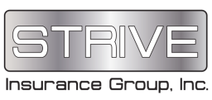 Austin, TX- Business income insurance or business interruption insurance (they are the same) can make the difference between life and death of a business following a loss. It's one of those coverages that comes up every so often and most clients are not aware how it works. Most business owners would never consider opening a business without buying insurance to cover common perils such as fire, hail or theft. Some don't realize how difficult it can be to get their business back up and running after a catastrophic loss. A business that has to close down while the premises are being repaired may lose out to competitors, or lose a key employee that is vital to the business. Most business owners would agree, the faster you can get your business up and running, the better. That is where business income comes in. It compensates you for lost income if your company has to vacate the premises due to disaster-related damage that is covered under your property insurance policy, such as a fire. It covers the profits you would have earned, based on your financial records, had the disaster not occurred. It also covers operating expenses, like rent or mortgage payments, that continue even though business activities have come to a temporary halt due to the loss. It also pays for extra expenses you incur to expedite recovery or continue operations, such as a move to a temporary location. One important thing to note is that in order for business income or business interruption insurance to kick in, the damage must be covered under a covered peril. See covered perils in your policy. If you're not sure, have your agent help you (or call us). For example, flood is most likely not a covered peril, so business income or business interruption is not going to kick in for damage caused by a flood. Also, make sure the policy limits are sufficient to cover your company for more than a few days. Sometimes the policy will state a limit and other times it might state “actual loss sustained". After a major disaster, it can take more time than people anticipate getting the business back up and running, so making sure you look into your options can be vital. There is generally a 48-hour waiting period before business income insurance kicks in. Sometimes there are policy options available to change the waiting period. I have seen the waiting period anywhere from "no waiting period" to 72 hours. It really depends on the insurance carrier. If it is more than 72 hours, I would see if it's possible to change it. I'm sure it wouldn't cost that much to make this change. Business income insurance or business interruption insurance is surprisingly affordable and is usually based on your gross sales. Studies have shown 40% of businesses don't reopen after a disaster, so having this coverage could be a game changer for your business. If you have questions about this coverage, please feel free to contact one of our licensed agents. [email protected] 512.576.7338
0 Comments
 When it comes to Commercial General Liability insurance, some business owners are not aware their General Liability insurance for that year is based on assumptions. So you can imagine how surprised they are at the end of the year when they get their Premium Audit paperwork in the mail. Usually the first person that gets to hear about it is the agent. Since it comes up every so often, I figured I would explain the details. Lets say you are starting a business and you obtain an insurance quote from an agent. The agent most likely asked you what your gross sales and/or payroll is going to be. It's a start-up business and you estimate gross sales are going to $800,000. 12 months rolls around and you blew those figures out and did $1,500,000 in gross sales. You get your Premium Audit figures and fill in the actual numbers. A month later you get an unexpected bill in the mail from the insurance carrier, which definitely warrants a phone call to your insurance agent. Your insurance agent explains everything and you learned something new. Obviously this information would have been helpful at the beginning of the policy term. Looking at it from a different outcome, let's say you estimate $1,500,000 and you actually did $800,000. Most likely, if you are with a standard market insurance company, you will get a check back because you paid more than needed. This is known as a two-way audit. If you are with a non-standard or non-admitted insurance company (also known as surplus lines market), you would most likely not get anything back. This is known as a one-way audit. So when getting a General Liability Insurance quote, make sure you use realistic numbers for both gross sales and payroll. When it comes to Workers Compensation, the same applies. Bottom line, and most importantly, the initial quote is really only an estimate. Here are some tips to avoid surprises:
If you have any questions about your General Liability Insurance audit or any questions about your business insurance, please feel free to call or email me. Jason Matison | Business Insurance Agent | Austin, Texas [email protected] 512.576.7338 As an illustration, let’s look at what would happen if you or one of your employees caused an accident that severely injured another person during the course of doing business.
In this scenario, assume your costs and legal fees came to $3 million dollars, which is unfortunately not unreasonable given the high costs of medical expenses, hospitalization costs, attorney fees and legal settlements. If you had $1 million worth of commercial liability insurance and $5 million worth of business umbrella insurance, your liability coverage would protect you as follows:
Source: Trusted Choice |
Categories
All
Archives
February 2024
|
NOTICE: This blog and website are made available by the publisher for informational purposes only. It is not to be used as a substitute for competent insurance, legal, or tax advice from a licensed professional in your state. By using this blog site you understand that there is no broker client relationship between you and the blog and website publisher.
